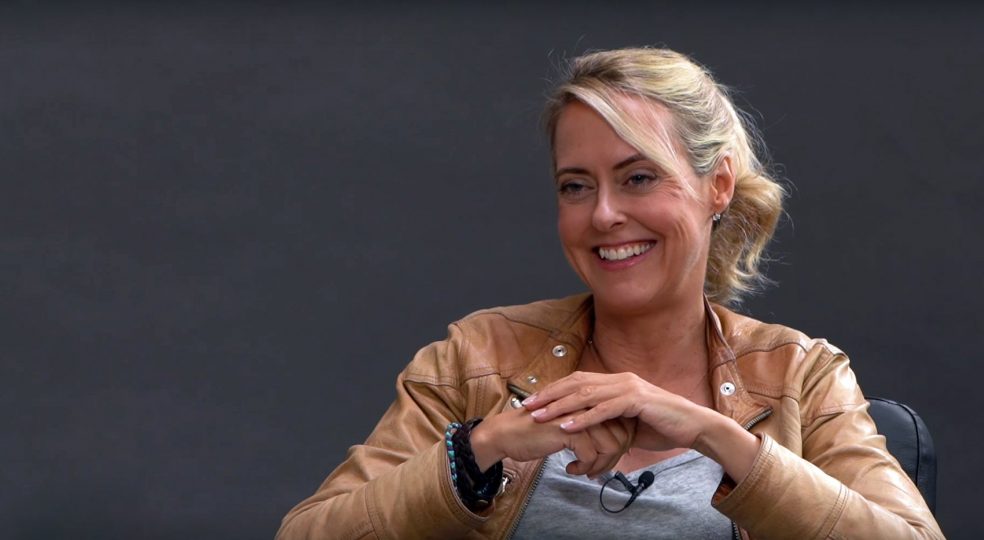
Where is happiness to be found here? Maike van den Boom has dealt intensively with this question - and published a book with the same title. The bestselling author has travelled through the 13 happiest countries in the world and researched happiness. Always with the question: What can we learn from these 13 countries? Meanwhile, Maike van den Boom lives in Stockholm. In this interview, she talks about her mission to make Germans happier.
Maike van den Boom thinks that we Germans are too attached to old traditions, patterns of behaviour and thinking that make us unhappy. In the interview, she says: "That's why I look at what countries are doing that are happy and bring their thoughts to Germany. I don't want to convert or instruct anyone, but I do want to offer people something. And if everyone tries that out a bit, something will change." For her adventure trip through the 13 happiest countries in the world, Maike was on the road for nine weeks.
I got a new feeling for mentality.
Maike van den Boom
Maike: "Each country got four days from me. So I was only ever on location for a short time. But it was always very intensive, because I interviewed everyone who ran in front of my camera from early in the morning until late at night - plus happiness researchers, Germans abroad and journalists as experts. That was enough. And I have to say that my move to Sweden has given me an even closer look at the Scandinavian countries. In doing so, I noticed once again that you get a feel for a mentality very quickly when you talk to the inhabitants about the things that are close to their hearts."
Maike has gathered many insights about happiness. For example, she is sure that freedom is an important aspect of happiness and that you should not blame anyone else for your own happiness. She also believes that there are many people for whom happiness is weird and who can't do anything with it. Maike. "Happiness always comes with a Lightness therefore. And you need a little bit of naivety or naivety. We don't like that in Germany - here, everything has to be factual and critically sound."
This does not mean that happiness is easy or fluffy. Maike van den Boom: "Happiness is hard work. You have to work for it and, above all, choose to be happy. And then you have to make an effort every day to make it happen. Although I am a very happy person, Stockholm is a kind of foreign internship for me. I try to implement what is conducive to happiness in my daily life. And in the process I realize: I am quite German. You always have your cultural backpack with you and you can't just take it off."
Maike van den Boom distinguishes between a happy life - some call it Satisfaction - and brief moments of happiness. Their mission is to make Germans happier. This implies that we are not quite as happy as we could be. What is standing in our way? Maike: "We ourselves. We are not unhappy people - but there is still room for improvement. We have everything we need, but somehow don't use it. We are a great people, but are so deeply stuck in our structures where envy, comparison and measuring ourselves against others are still rooted. We're always trying to separate things and stuff them into compartments. That gets in our way a little bit."
According to Maike, the fear of loss and the fear of falling short live deep in our hearts. She finds that even in childhood there are many mechanisms that more or less train away the feeling of happiness. Maike: "Our parents, for example, are very good at it - because of course they are already socialized. Then comes school, you get grades and differentiate between right and wrong, there are successful and losers. We go from one drawer to the next and lose happiness because it stays in one of those drawers. Happiness as a base would already be there if we didn't forget what really matters."
Maike is sure that pigeonholing is more pronounced in German culture than in others. She reports: "In Scandinavian countries, for example in Norway, children are supposed to develop much more as their own personalities. Because the Scandinavians say: 'We have nothing to gain from everyone being the same. How can we achieve something unique together if everyone is the same?" Scandinavian countries are the most individualistic countries in the world. They offer the freedom to do what you are comfortable with and what you have as an idea in your head."
According to the happiness researcher, people in Germany often don't even dare to talk about things because they are stuck in hierarchies. Maike: "The Scandinavians, on the other hand, think there's nothing more valuable than a second opinion. Because it could be that your own is wrong, or that you develop an even better idea together. That's a completely different approach."
In addition, according to Maike, Scandinavian countries are characterised by fewer structures and rules: "Even in companies and schools there are fewer structures. Rules steal energy and motivation. You achieve more motivation, on the other hand, when you are allowed to take responsibility and make mistakes. It's better to eliminate one rule and make one more mistake!"

